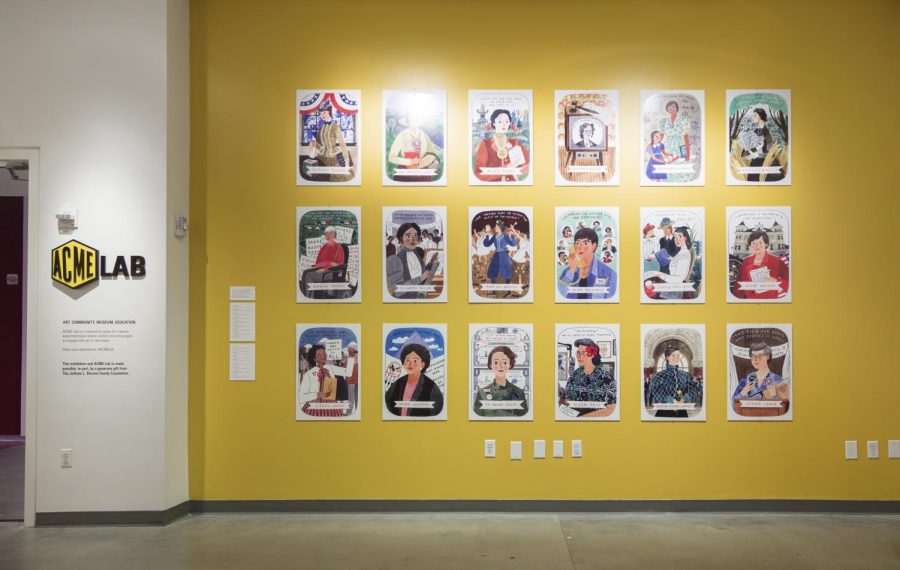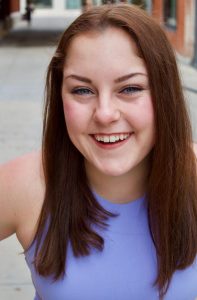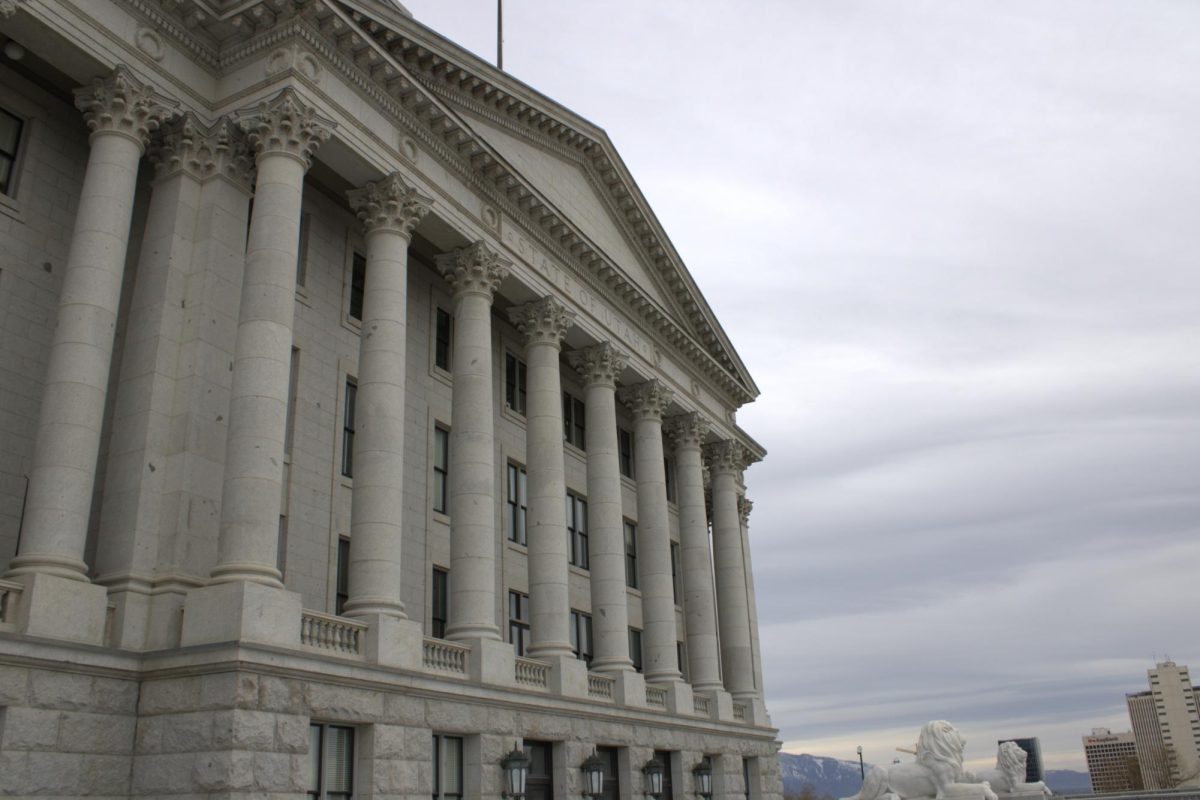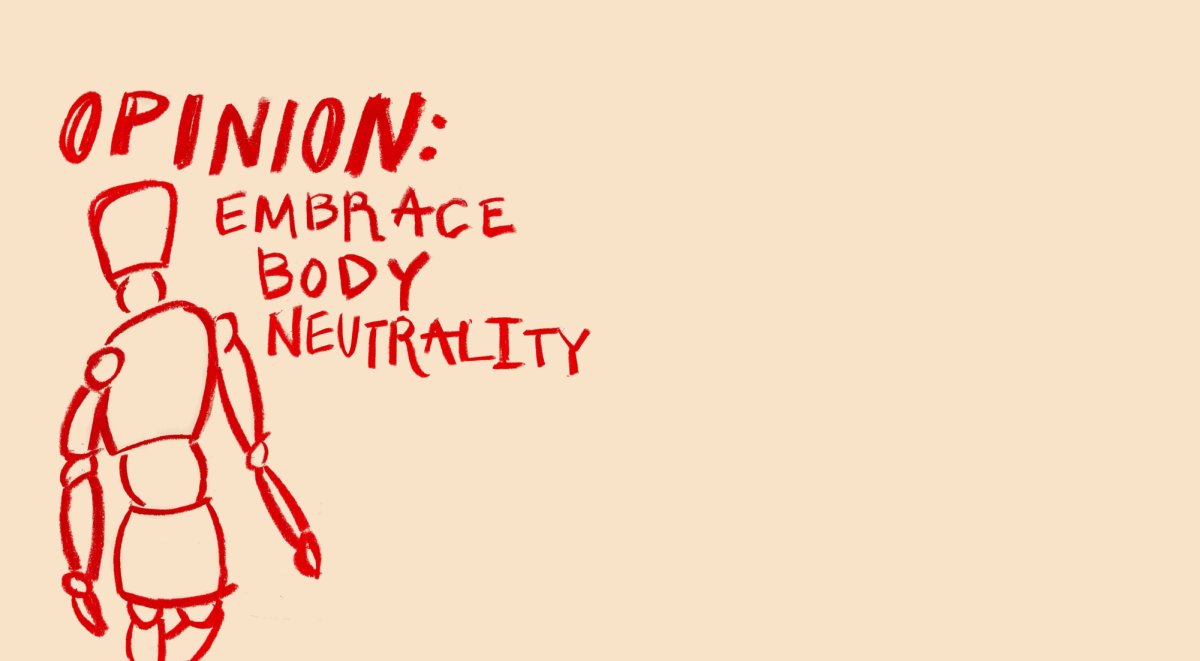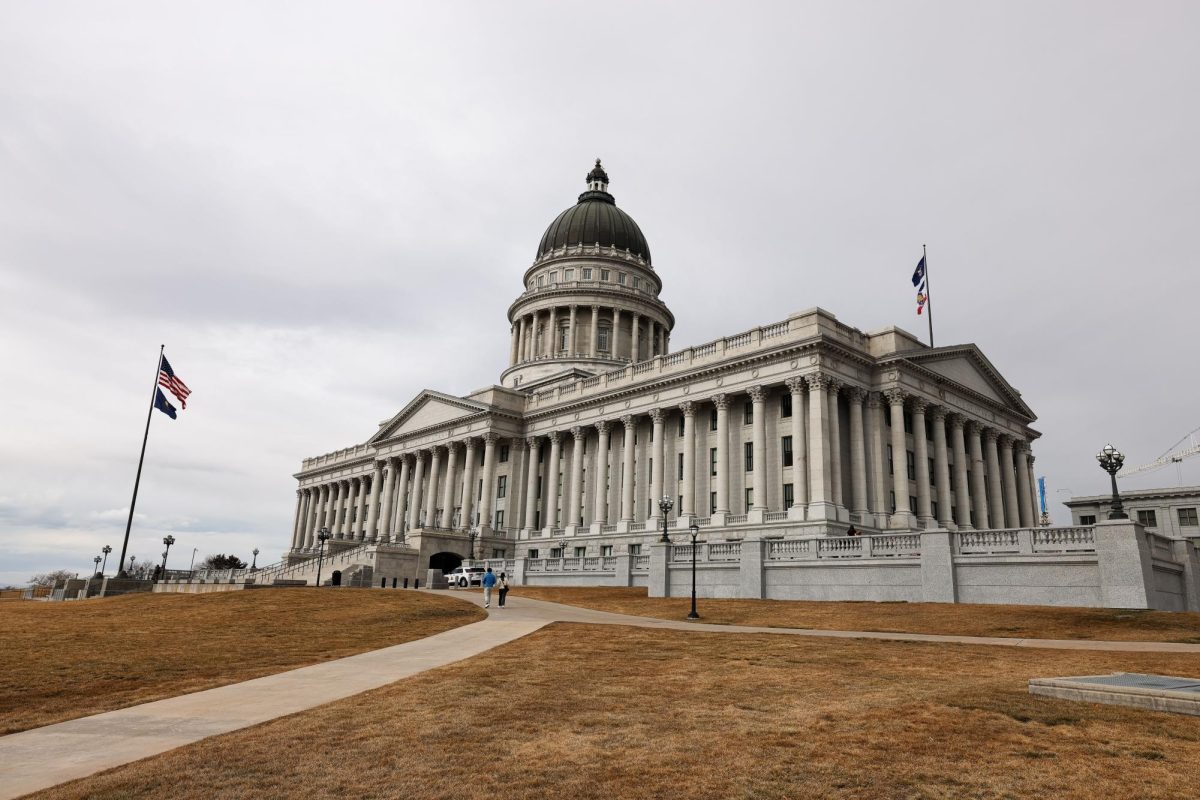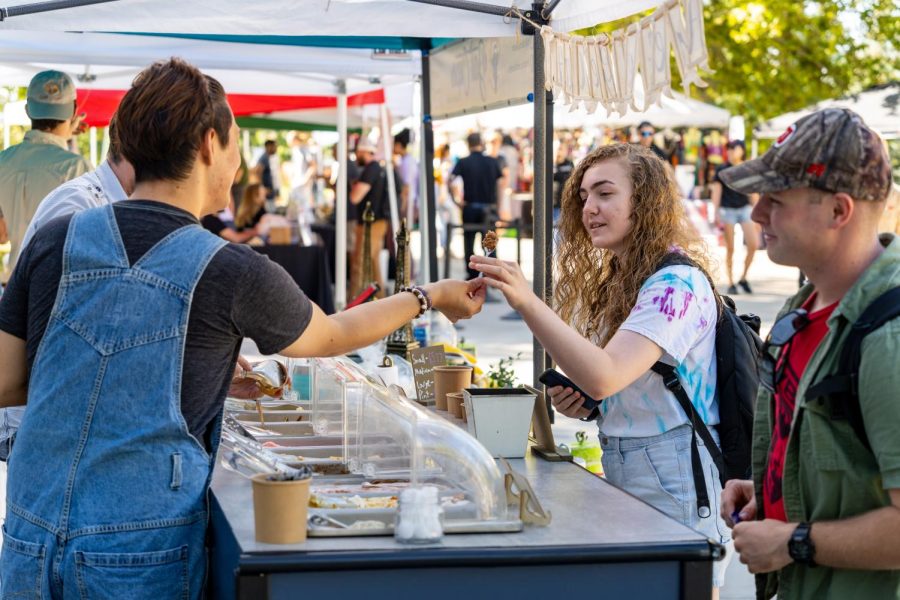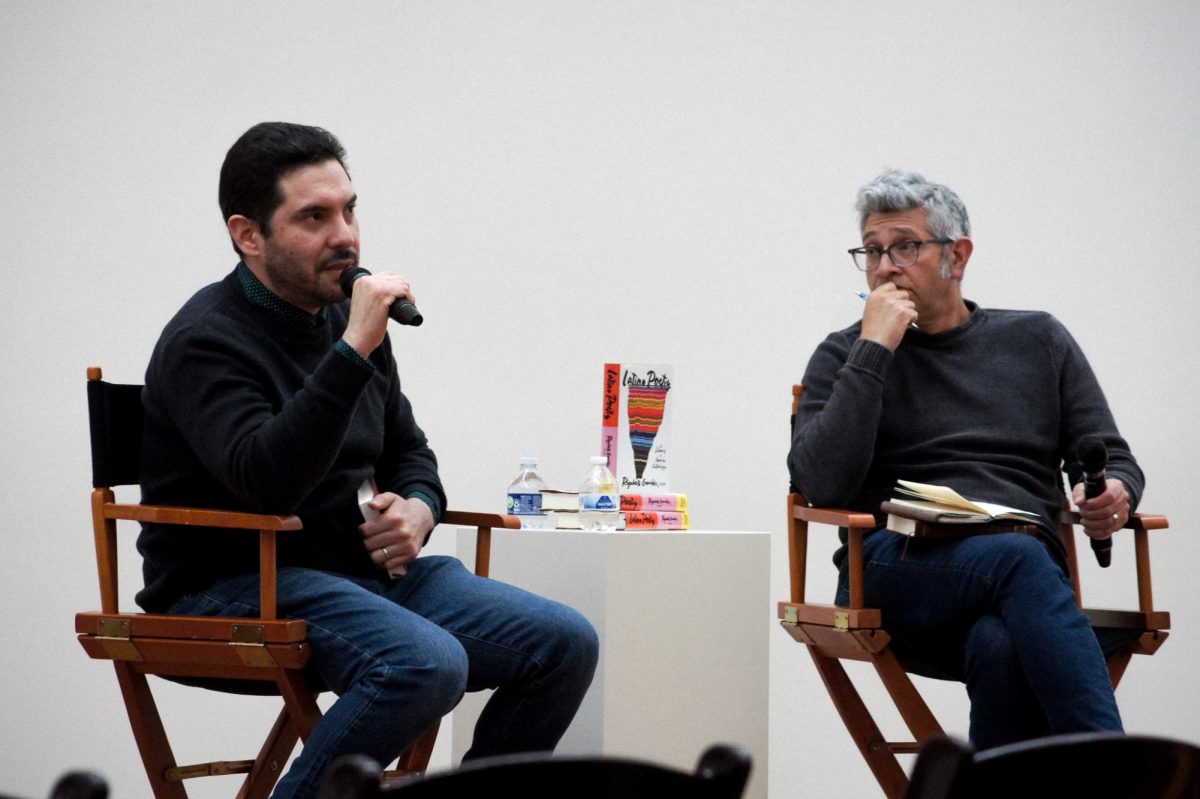UMFA Exhibition Highlights Stories of Female Activists During Milestone Anniversaries
“Utah Women Working for Better Days” highlights the histories of local women. (Courtesy Utah Museum of Fine Arts)
April 12, 2020
This article was originally published in print on March 30. For more up-to-date information on how to view this exhibition, visit umfa.utah.edu.
Utah may not be the first state in the nation that comes to your mind when you think of women’s leadership, but a new exhibition at the Utah Museum of Fine Arts shines a light specifically on powerful female activists in the state. Organized in collaboration with the J. Willard Marriott Library and local non-profit, Better Days 2020, “Utah Women Working for Better Days” chronicles various women’s histories and asks us all to consider what a ‘better day’ looks like. This exhibition is hosted in the UMFA’s ACME lab as an interactive amalgamation of several organizations to popularize the storied history of Utah women.
The genesis of this exhibition revolved around landmark anniversaries — the 55th of the Voting Rights Act, the 100th of the ratification of the 19th Amendment which gave women the right to vote nationwide and the 150th of when Utahan Seraph Young became the first women to vote in the United States. “The Utah women who challenged the status quo in the days leading up to 1870 dared to dream of a world in which they had a say in policies that would affect them,” said Alana Wolf, collections research curator at the UMFA. The exhibition hosts a suffrage songbook, campaign memorabilia and more drawn from the Special Collections at the Marriott Library.
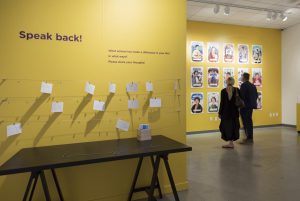
Jessica Breiman is an archives metadata librarian who contributes to integrated projects with the museum, like this one, through a grant. She has been working on this particular exhibition for over a year in cataloging, metadata and object research. “The hardest part of the process was winnowing down the objects that we wanted to use. We essentially winnowed a list of over 200 objects into about 15,” she said. This process involves identifying pieces from the library’s special collections and choosing pieces that fell in with the themes of blazing activist trails and taking political action.
Breiman and her team selected items from collections on Reva Beck Bosone, a lawyer in the 1930s who was the first woman to serve in the Utah State Legislatures and represent Utah in Congress, and Alberta Henry, who was president of the Salt Lake City branch of the NAACP. Breiman said, “It’s pretty fun to be able to dig into the collections and do research for the exhibitions – it’s pretty incredible to be able to handle documents that are almost a hundred years old.”
Nearly 100 years of women’s history goes relatively unspoken, unstudied and unrepresented. Local non-profit Better Days 2020 is committed to changing this status quo, highlighting women’s leadership through education, legislation and art. One of their major projects was developing educational curriculum for Utah and U.S. history classes, sparking the creation of their popular ‘trading cards’ which featured illustrations and biographies of 50 female advocates and community leaders. These prints are now available in classrooms and museums and they are even on display on the fourth floor of the Utah Capitol Building.
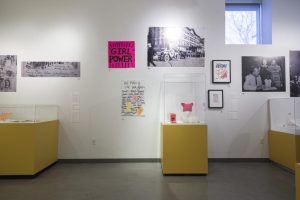
Katherine Kitterman is the Historical Director of Better Days 2020 who first started working on this exhibition by sharing these illustrations with a Marriott librarian, and the idea for the ACME lab exhibition was born. “This collaboration was a nice way to highlight the ways Utah women have worked for social change across the past 150 years or so, to think about tactics and strategies from the past and how they relate to the present,” Kitterman said. “I hope the exhibit offers Utahns an opportunity to think about themselves as changemakers and inspires them to get engaged in the community on issues that matter to them.”
In addition to what these community organizations have put together inside the museum’s doors, their mission towards education and engagement has introduced several public programs. Voter Registration Drives will be held March through October on the first Wednesdays and third Saturdays of each month, with support from the Hinkley Institute and ASUU. Continuing through the end of the year, other events include a Hinckley Forum with a panel of political representatives and a family Trading Card activity highlighting women in our own lives.
The exhibition will be on view in the ACME Lab. Located in the Emma Eccles Jones Education Center, this space is designed for experimental pieces that are focused on sparking questions and active participation from patrons. However, with the recent advances taken on campus towards limiting the spread of COVID-19, both the Natural History Museum of Utah and the UMFA are closed to the public until March 27. Then, the closure will be reevaluated and possibly extended. This also means the cancellation of the events and programs associated with the museums. Despite this, marketing director, Mindy Wilson of the UMFA said, “Utah Women Working for Better Days“ is on view through December 6, and we feel sure (as sure as we feel about anything these tumultuous days) that the Museum will open in plenty of time for visitors to experience it.”
For updates about the museum, patrons can follow the UMFA’s Facebook, Instagram or Twitter, or sign up for their e-newsletter.
h.keating@dailyutahchronicle.com
Editor’s note: Signs and symptoms of COVID-19 include fever, dry cough, tiredness, and shortness of breath. These symptoms are believed to occur between 2 and 14 days after a person is exposed to the disease. If you have these symptoms and have recently come into contact with a person who is known to have COVID-19, or if you have recently traveled to an area with community spread of the disease, you should call your doctor. Areas with community spread of COVID-19 are believed to include China, South Korea, Italy, Iran, and Seattle. If you do not have a doctor who you visit regularly, please call the Utah Coronavirus Information Line at 1-800-456-7707 or the University of Utah Health hotline at 801-587-0712. Do not go to a healthcare facility without first making arrangements to do so.


